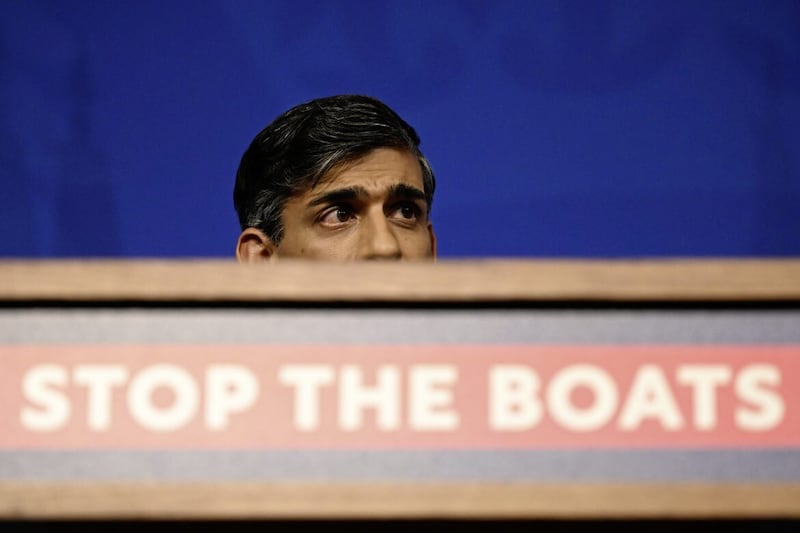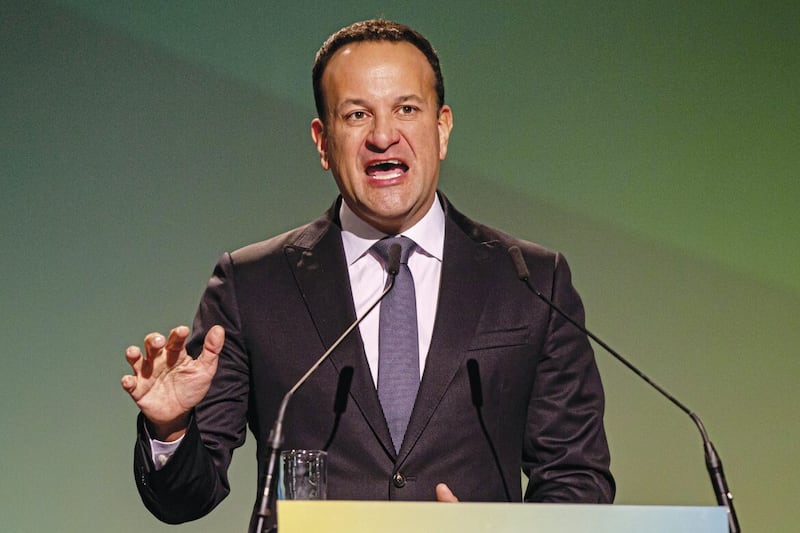Keir Starmer's speech about "Making Brexit Work", which he delivered on Monday night wasn’t terribly different to what ERG types have been saying for the last couple of years.
In fact, it was a speech you could just imagine Boris Johnson giving.
It was somewhat gauche of Starmer to deliver this speech at the Irish Embassy in London. If you’re going to advocate a hard Brexit with no customs union, no single market and no freedom of movement then you might be wise not to do so in the house of the people who are engaged in mitigating against the worst effects of all of those things.
Starmer said: “Our driving mission is to get Britain’s economy growing again so we can ensure the peoples and the places who for too long have lost out are once again revitalised and re-energised…The first step in doing so, is to ensure Britain thrives in its new role in the world by making sure we Make Brexit Work.” In using capital letters on each word, Labour’s newest slogan is born.
It will have come as a shock to many that the Labour leader has so closely aligned the party position to that of Johnson’s government, particularly when Starmer showed up at a rally in support of the People’s Vote seeking a second Brexit referendum in the hope of a remain victory. But when 19 Labour MPs defied the then leader Jeremy Corbyn in 2019 to vote in favour of Johnson’s “oven ready” Withdrawal Agreement Bill, the die was cast.
And yes, of course, once a democratic majority sets out on a particular path, that mandate must be respected. The challenge now is to ensure the best possible mitigations on behalf of those most negatively impacted by Brexit.
Starmer has a five-point plan to Make Brexit Work. The plan’s first point is to “sort out” the protocol. He says that Labour will be an honest broker and ensure that it eliminates most border checks and come up with a new veterinary agreement for agri-products and develop a better scheme for low-risk goods coming in to the north to do so without checks. This isn’t going to win any friends within unionism, whose position is clear – it’s either the protocol or power-sharing.
The rest of the plan is tearing down unnecessary barriers to trade, supporting Britain’s industries, keeping Britain safe and investing in Britain. What is it with political parties and five-point plans heavy on soundbites and light on detail?
It's worth noting that Starmer said “Britain” fifteen times during the speech and said “UK” only twice. It is not the case that the word “Britain” is used as shorthand by politicians when they mean the United Kingdom of Great Britain and Northern Ireland. Either Starmer sees the long-term constitutional future as one where the north is no longer part of the union, or his speech plays to the reality that Labour is only running candidates in England, Scotland and Wales.
Within a week of Nicola Sturgeon announcing an October 2023 for Indy Ref 2 (albeit may require a Supreme Court challenge to get there), Starmer has effectively ended any chance of a Labour revival in Scotland.
Scottish voters would seem to now have a choice between a hard Brexit under the Conservatives, a hard Brexit under Labour or independence, which may provide a route back into the EU.
Similar to the north, there is a significant segment of the population in Scotland who would never have considered themselves to be either nationalist or unionist prior to Brexit, but who are now unsettled. An independence referendum or a border poll aren’t simply a matter of personal or national identity but about halting the march of the “Little Englander” movement that really doesn’t care about what happens to the north or to the west, so long as it gets Brexit done.
One of the slogans of the pro-Brexit lobby prior to the referendum was “take back control.” There is a certain irony in the fact that growing support for a border poll in Ireland and an independence referendum in Scotland is about taking back control from a British government which most definitely can see the car crash down the road but won’t apply the brakes or change course.
The issue of identity as nationalist or unionist, whether in Scotland or the north, won’t be the single issue on which campaigns for independence or reunification will be won, no matter how many people try to make that what the campaign is about.
The argument for taking control of your own destiny and having the freedom to make your own decisions for your own community is much stronger than the argument for the status quo.
When the current British government and the second largest political party in Britain don’t have a hair’s breadth between them in regards to the single biggest political issue in a century, it becomes an easier choice to make.








